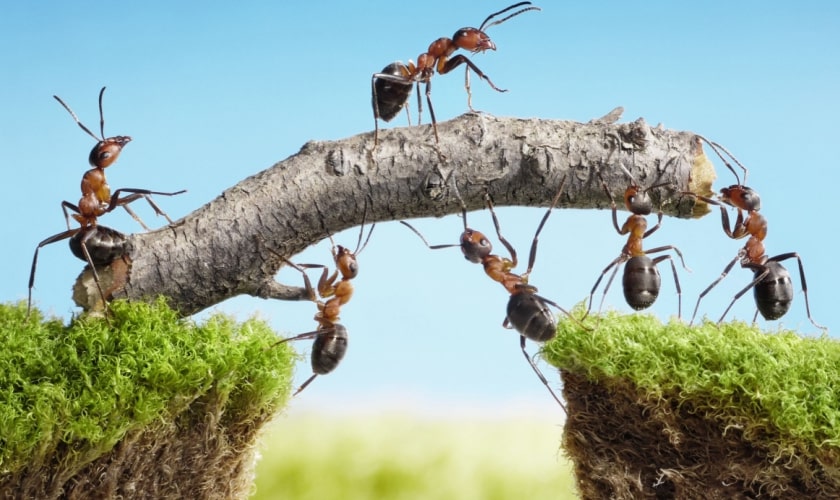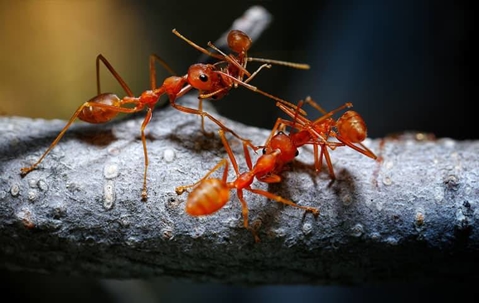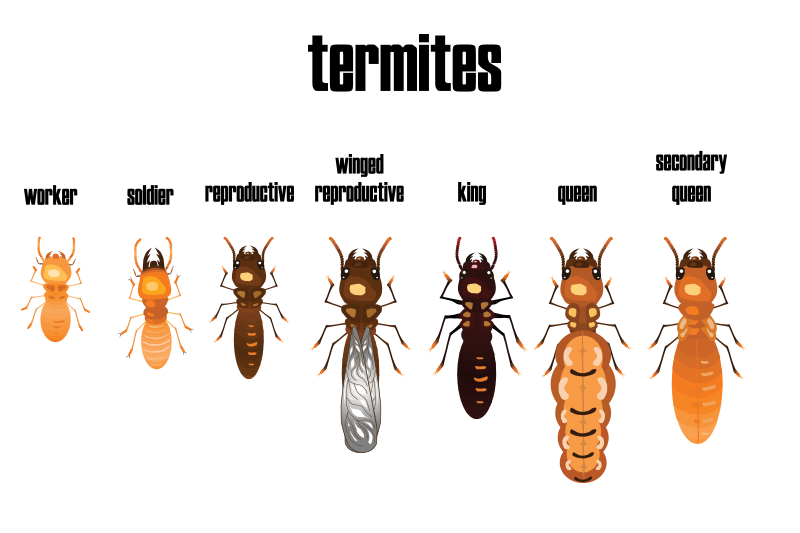Expert Ant Control Services: Customized Treatments for Lasting Results
Environmental Effect of Pest Control: Balancing Effectiveness With Sustainability
The ecological influence of insect control is a critical issue that calls for a delicate equilibrium in between attaining effectiveness in guaranteeing and taking care of bugs sustainability of our communities. As we aim to protect our crops, homes, and health and wellness from the risks postured by insects, the techniques we employ can accidentally damage the environment. From making use of hazardous chemicals that seep into our dirt and water to the unintended consequences on non-target types, the consequences of traditional pest control practices are far-reaching. However, there are emerging methods that use hope for an extra lasting method to pest monitoring. These remedies not just goal to resolve the instant pest problems however also think about the long-lasting health and wellness of our earth.
Unsafe Chemicals in Parasite Control
The usage of hazardous chemicals in insect control poses substantial ecological and health and wellness risks that necessitate mindful consideration and reduction approaches. Pesticides, herbicides, and pesticides are frequently utilized to eliminate bugs, but their prevalent application can cause unintended consequences. These chemicals can pollute dirt, water resources, and the air, influencing not only the targeted bugs however likewise valuable bugs, wildlife, and human beings.

To deal with these threats, incorporated pest administration (IPM) techniques are being promoted as a more lasting alternative. IPM involves a mix of techniques such as organic control, habitat manipulation, and the targeted use of chemicals as a last resource (ant control garner nc). By taking on an all natural technique to pest control, we can reduce the environmental and wellness effects connected with damaging chemicals while efficiently managing pest populations
Influence on Non-Target Variety
Thinking about the unintentional consequences of bug control techniques, the influence on non-target species is an essential aspect that needs extensive evaluation. While bug control steps intend to target certain pests, various other microorganisms in the environment may be unintentionally affected. Non-target types, consisting of helpful insects, birds, creatures, and even plants, can experience direct or indirect injury from pesticide applications or organic control approaches.
Pesticides created to battle a particular bug parasite might damage pollinators like or natural predators such as ladybugs. Biological control agents, if not species-specific, can position risks to unintentional targets, disrupting the environmental balance.
To reduce the influence on non-target types, incorporated parasite monitoring (IPM) approaches that stress a holistic strategy to pest control are advised. These approaches focus on using eco-friendly methods, lessening damage to beneficial microorganisms while properly taking care of pest populations. Conducting extensive risk assessments and keeping an eye on the results of insect control initiatives are crucial actions in protecting non-target species and advertising general community health.
Soil and Water Contamination
Unintended ecological effects of bug control techniques extend beyond influencing non-target species, with considerable ramifications for soil and water contamination. Pesticides, herbicides, and chemical plant foods utilized in insect control can leach into the dirt and contaminate groundwater, posturing a danger to both aquatic and terrestrial communities. Dirt contamination can disrupt the equilibrium of microorganisms crucial for nutrition biking and plant growth, causing decreased soil content fertility and performance. These chemicals can linger in the environment for prolonged durations, building up in the dirt and possibly entering the food chain.
Water contamination is one more critical problem linked with insect control practices. To reduce soil and water contamination from pest control activities, integrated insect management strategies that focus on sustainability and lessen chemical inputs are vital.
Air Contamination From Pesticide Usage
Exposure to air-borne pesticides during agricultural applications postures a significant worry for air contamination control steps. In addition, pesticide drift, where pesticides are lugged by the wind to unintended areas, can lead to the contamination of neighboring ecosystems and water bodies.

Methods for Lasting Pest Control
In the world of farming techniques, implementing sustainable insect control techniques is vital for keeping eco-friendly equilibrium and safeguarding crop yields. Sustainable pest control emphasizes using eco-friendly approaches to manage pest populations effectively while reducing damage to non-target organisms and environments. Integrated Bug Administration (IPM) is a commonly embraced strategy that incorporates organic, cultural, physical, and chemical control techniques to achieve long-term insect management options.
Plant turning and diversification are additionally efficient methods to interfere with pest life cycles and produce much less desirable problems for bugs to grow. Eventually, by incorporating these lasting parasite control approaches, farmers can accomplish an equilibrium between pest administration efficiency and environmental stewardship.
Verdict
To conclude, the ecological impact of insect control approaches need to be meticulously taken into consideration to stabilize effectiveness with sustainability. Hazardous chemicals utilized in bug control can lead to soil and water contamination, air contamination, and injury non-target species - termite control services. It is essential to carry out lasting insect control methods to minimize these negative impacts on the setting and advertise a healthier environment for future generations
By adopting an alternative strategy to pest control, we can minimize the ecological and wellness impacts linked with hazardous chemicals while properly managing pest populations.

To mitigate the air pollution created by chemical usage, it is vital to take on integrated bug management approaches that focus on the use of non-chemical parasite control approaches, such as crop turning, all-natural predators, and immune crop varieties. Lasting parasite control stresses the usage of environmentally pleasant methods to handle bug populaces efficiently while decreasing harm to non-target organisms and environments. Integrated Parasite Management (IPM) is a commonly embraced strategy that combines biological, cultural, physical, and chemical control techniques to accomplish lasting parasite management services.